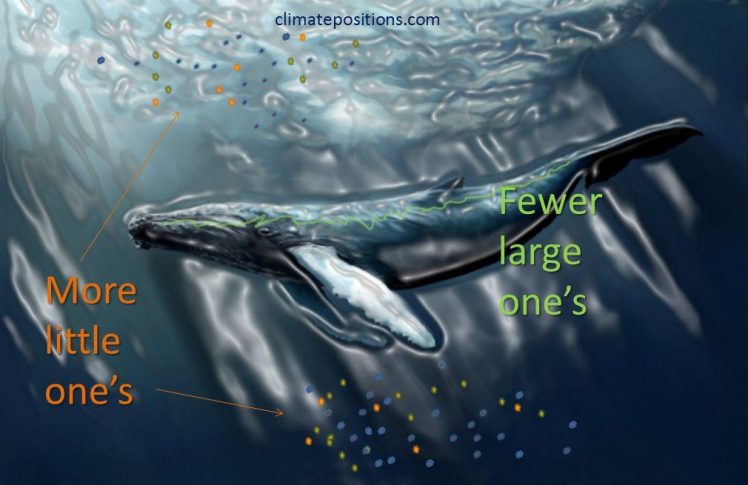Research: The emerging mass extinction in the ocean threaten larger animals more compared to past mass extinctions (more bad news)

2016
The research ‘Ecological selectivity of the emerging mass extinction in the oceans‘ (pdf, 4 pages), published in the journal Science, show that “extinction threat in the modern oceans is strongly associated with large body size, whereas past extinction events were either nonselective or preferentially removed smaller-bodied taxa.” Or in other words: The balance between smaller animals and larger animals changes to the disadvantage of larger animals – due to human impact.
To better predict the emerging biodiversity crisis in the oceans the research compared the association between ecological traits in modern marine animals to associations observed during ‘Past mass extinctions‘ events using a database of 2497 marine ‘Vertebrate‘ and ‘Mollusc‘ genera.
The study found that pelagic animals (living neither close to the bottom nor near the shore) were victimized more than benthic animals (living in the lowest level of water or in the sediment surface) during previous mass extinctions, whereas pelagic animals are not preferentially threatened in the modern ocean.
According to ‘The Guardian’ associate professor and chair of geological sciences at Stanford University Jonathan Payne said: “If this pattern goes unchecked, the future oceans would lack many of the largest species in today’s oceans. Many large species play critical roles in ecosystems and so their extinctions could lead to ecological cascades that would influence the structure and function of future ecosystems beyond the simple fact of losing those species. The danger is disproportionate to the percentage of threatened species, with the authors warning the loss of giants would disrupt ecosystems for millions of years even at levels of taxonomic loss far below those of previous mass extinctions. The loss of larger species in the oceans could have knock-on effects on ecosystems…”
.
Report in the journal Science 16 September 2016 (abstract): ‘http://science.sciencemag.org/content/353/6305/1284.full‘
The Guardian: ‘https://www.theguardian.com/environment/2016/sep/14/humanity-driving-unprecedented-marine-extinction‘
Article: ‘http://www.ecowatch.com/oceans-overfishing-mass-extinction-2005701998.html‘
The six mass extinctions: ‘http://www.endangeredspeciesinternational.org/overview.html‘
PowerPoint collage (Fewer large one’s) by Claus Andersen, 2016.
Comments are closed.